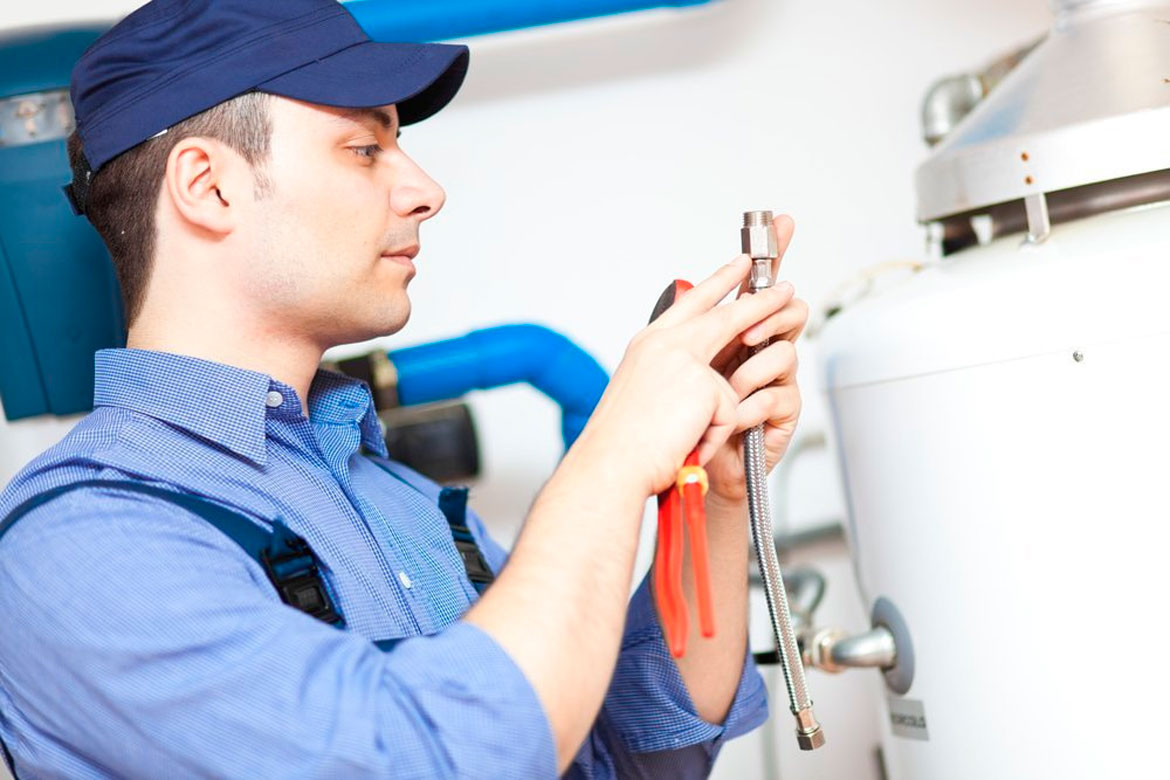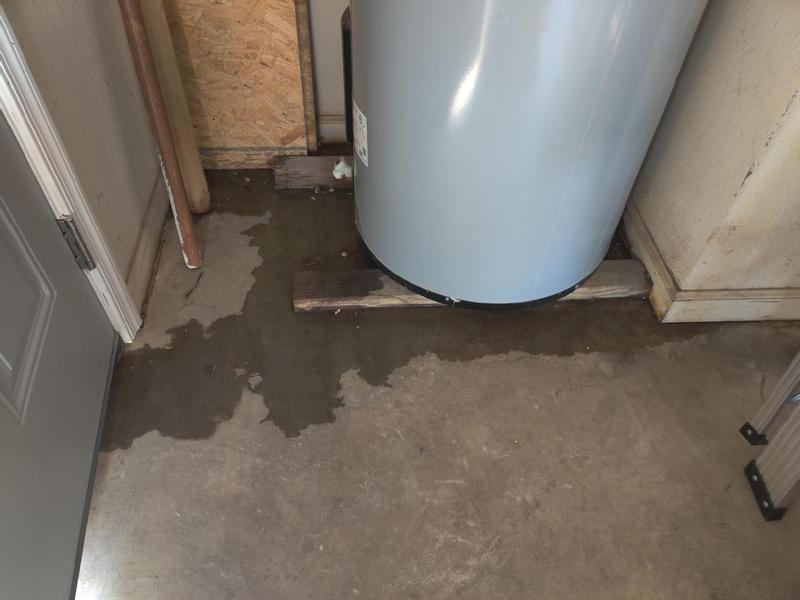Key Steps for House Owners Dealing with Broken Heating Units
Key Steps for House Owners Dealing with Broken Heating Units
Blog Article
In this article down the page you can get additional sensible facts around How to Avoid a Broken Hot Water Heater.

Whether it is located in the basement or a different room, damaged water heaters can cause stress. Having no hot water supply is likewise frustrating.
Shut Off Power Source
Before calling the plumber, shut down a gas hot water heater by turning the temperature level dial. This is generally situated on top of the thermostat. If you have a design that operates on electric power, turn off the breaker. This will protect against electrocution, specifically if there is a leakage as water is a conductor. Generally, the heating element shuts off when the water hits a specific temperature level. But with a damaged tank, it may malfunction. Cutting it off guarantees you remain secure.
Cut Off the Cold Water Supply
Cut off the tanks tap water supply from the source. When your storage tank is in great problem, the chilly water quits loading up when the container is complete. If you can not find it or reach it, you should transform off that main water supply line outside your residential property.
Call the Plumber
After doing the initial two safety steps, you should call your plumber ahead right away to take care of a fractured hot water heater. Nevertheless, remember that your unit will certainly not simply conk out drastically overnight. There are typically indicators that your aging water heater has sediment buildup in the interior. Remember of the following:
Rather, as quickly as you identify these signs, have an expert come to inspect your water heating system give thanks to. Commonly, water heating systems have a life-span of regarding 8 to 12 years.
Clean Up Residential or commercial property
After calling the plumber, file damages by taking notes and also pictures so you can claim your homeowner's insurance coverage. Eliminate any kind of standing water to prevent mold and mildew as well as mold growth. If you have a submersible water pump, make use of that to drain the water.
Bear in mind, if you discover any problems with your hot water heater, call the pros immediately. You can not take this issue gently since a damaged thermostat can increase water temperature to a precariously high degree, causing accidental burns. A damaged heating system pressure safety valve can additionally cause a surge. For ideal results, obtain a yearly check so your unit gets checked, cleaned, drained, as well as replenished, ensuring ideal performance.
Whether it is located in the basement or a different space, busted water heaters can create stress. Before calling the plumber, shut off a gas water heating system by turning the temperature level dial. After doing the initial two safety actions, you should call your plumber to come right away to repair a fractured water heating unit. If you have a completely submersible water pump, use that to drain pipes the water. Remember, if you observe any kind of issues with your water heater, call the pros right away.
8 REASONS YOUR HOT WATER HEATER IS NOT WORKING & HOW TO FIX
Water Heater Problems & Solutions
Loose or Damaged In-Line Valve
Unlike a water leak near the bottom of your water tank, a water leak on top of your system can be easily fixed. A common cause of water tank leaks includes a loose in-line valve. This is a handle that is located at the top of the water tank that is engineered to activate or deactivate the flow of water. To fix this problem, you will need to secure the nut that holds the ball or in-line valve in its location. If the leak becomes more severe once it is tightened, you will be required to travel to your local hardware store to purchase a new in-line valve for your water heater.
Damaged Pressure Relief Valve
Most types of water heaters are equipped with a pressure relief valve that is engineered to discharge pressure from the water tank when it becomes too high. If this valve on top of your water heater begins to leak, we recommend purchasing a new one online or from your local store. The process of removing and replacing pressure relief valves is not complicated.
No Warm Water
If you have an electric water heater in your home, the most typical cause of a lack of warm water is a broken heating element. Your water heater is equipped with two heating elements that are tasked with heating incoming water in the water tank. Once a heating element begins to malfunction, you will have little to no hot water to use for showering, cleaning, and laundry.
Low Supply of Hot Water
Are you continuously running out of warm water? This issue may be a byproduct of a cracked dip tube. This tube is engineered to push cold water to the base of your water tank to be heated. Once a crack or hole begins to form in the dip tube, the incoming supply of cold water may be released near the top or middle of your tank. As a result, the cold water on top of the tank will be sent to the faucets and showers in your house. This hot water heater problem can only be fixed by replacing the dip tube on your system. Since the process of installing a new dip tube is complex, we recommend calling a certified technician for help.
A low supply of warm water may also be a signal of excess sediment buildup in your water tank. As your water heater reaches the middle of its life cycle, minerals in water including magnesium and calcium will begin to collect at the base of the water tank. As the minerals continue to grow, there will be less room in the water tank to store hot water. To resolve this problem, flush your water heater to remove the excess minerals.
Water is Too Warm or Cold
If the water in your shower feels uncomfortable hot or cold, you can adjust the temperature of your water by changing the settings on your thermostat. Setting the temperature to 120 degrees Fahrenheit may help you save money on your utility bills. This is an excellent temperature to use if you’re worried about scalding or skin irritation. Does this temperature feel too cold? You may also adjust the thermostat to 140 degrees Fahrenheit to make your showers more pleasant. If your hot water heater is not working when you change the temperature, this is an indicator of a broken thermostat. Immediately find a certified plumbing or heating contractor in your area to repair or replace your thermostat.
Low Water Pressure
Low water pressure is not always caused by a malfunctioning water heater. If you live in an older home with smaller water pipes, the flow of water will be restricted prior to reaching our kitchen or bathroom skins. The only way to eliminate this hot water heater problem is to connect new ¾-inch water lines to your system. Another type of problem that may negatively impact your water pressure includes calcium deposits in water pipes.
As magnesium and calcium begin to form in your pipes, the diameter of your water lines will become smaller. As a result, the warm water from your water heater will not be able to travel in an efficient manner to your sinks or appliances. Since the process of replacing water pipes includes removing drywall, an average homeowner that does not have a plumbing license will not be able to fix this hot water heater problem.
https://www.wmhendersoninc.com/blog/8-reasons-your-water-heater-is-not-working-how-to-fix/

I discovered that article about Water Heater Burst while doing a search on the search engines. Sharing is caring. Helping others is fun. Many thanks for your time. Visit again soon.
Call now! Report this page